Year 3: Wellbeing
Use this unit hub to inform your medium-term plan and navigate to related resources.
The Curriculum and Assessment Review final report has been released. We’re reviewing the recommendations and planning for future updates. Learn more
- Subjects >
- Wellbeing >
- Key stage 2 >
- Year 3 >
-
Year 3: Wellbeing
Unit outcomes
Pupils who are secure will be able to:
- Identify ways of responding to others when they are upset by offering support or giving space.
- Connect with others about their interests or hobbies.
- Understand how actions can affect people.
- Take notice of their local environment.
- Understand how the actions of others can affect people.
- Apply strategies to improve an area.
- Identify the benefits of voluntary work.
Suggested prior learning
Year 2: Wellbeing
Get startedLessons
Discover: Practice makes progress
- To discover that practice makes progress.
Take notice: Making a difference
- To take notice of opportunities to make a positive change.
Connect: Shared interests
- To connect with others through shared interests.
Give: Appreciation
- To give appreciation.
Move: Motion detection
- To move using motion detection.
Related content
Unit resources
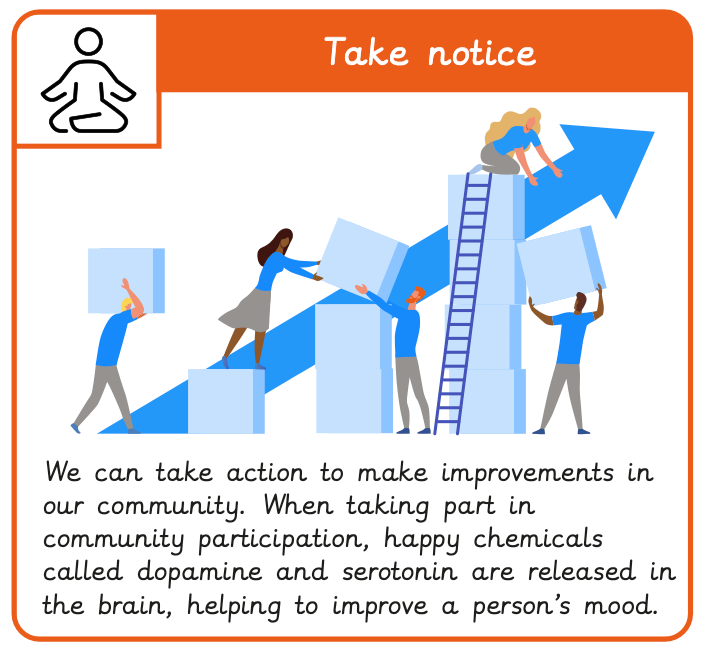
Knowledge Organiser – Wellbeing Year 3
Aimed at pupils, a visual summary of the unit's key knowledge, techniques and vocabulary.
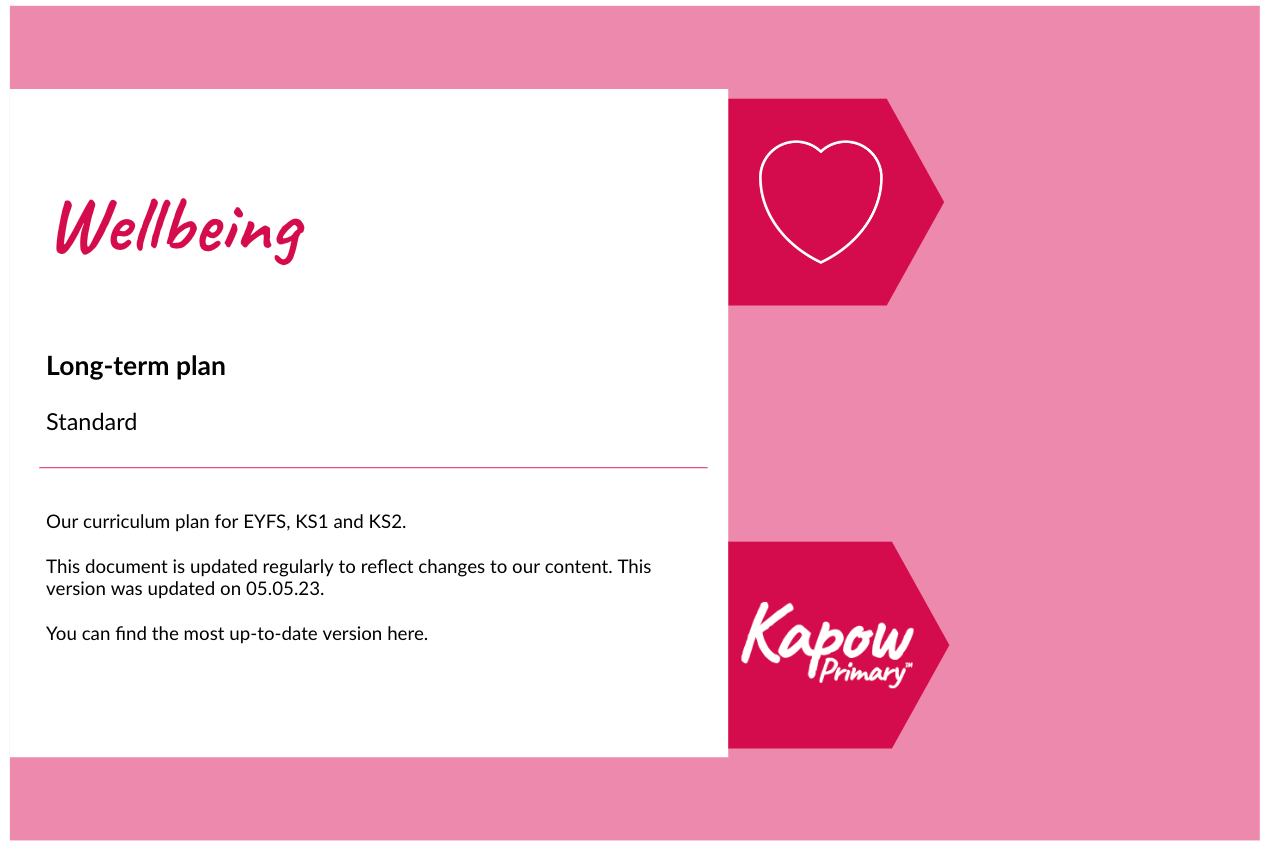
Wellbeing: Long-term plan
An overview of our wellbeing curriculum.
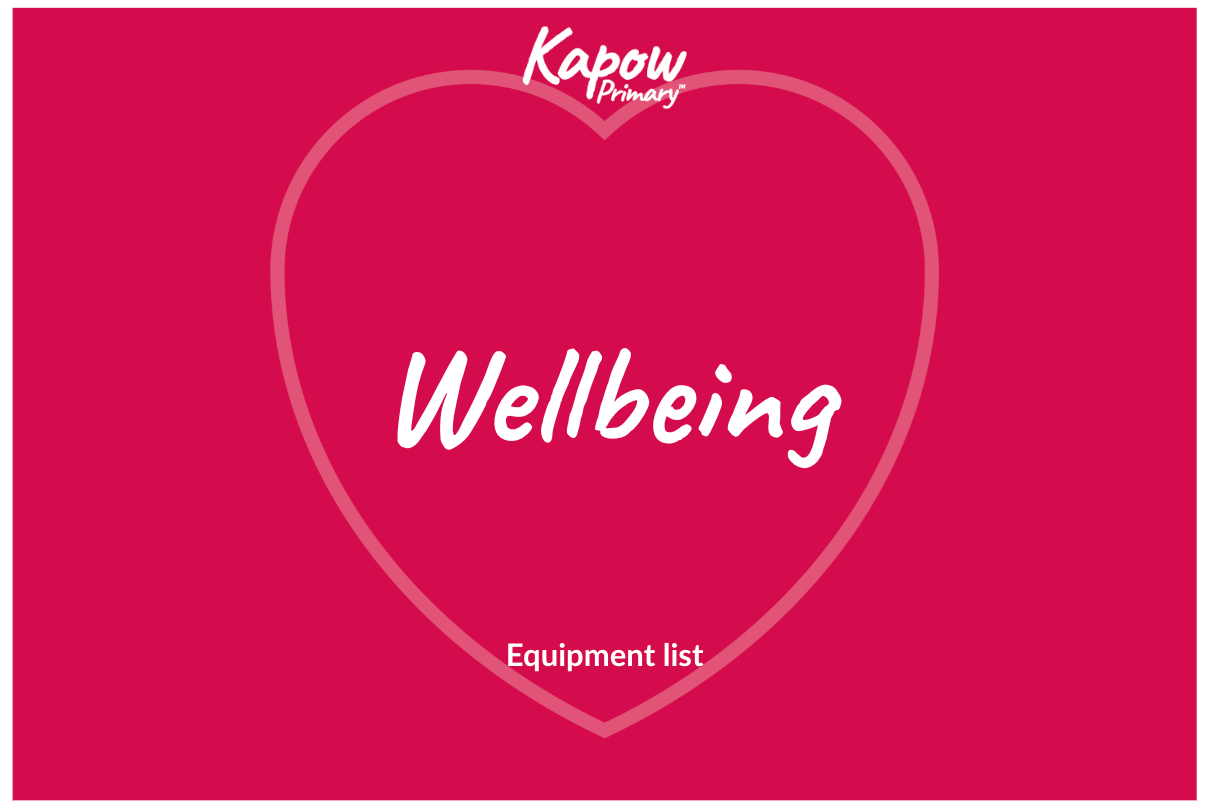
Wellbeing: Equipment list
A downloadable list detailing the required resources for Kapow Primary's free Wellbeing scheme of work.
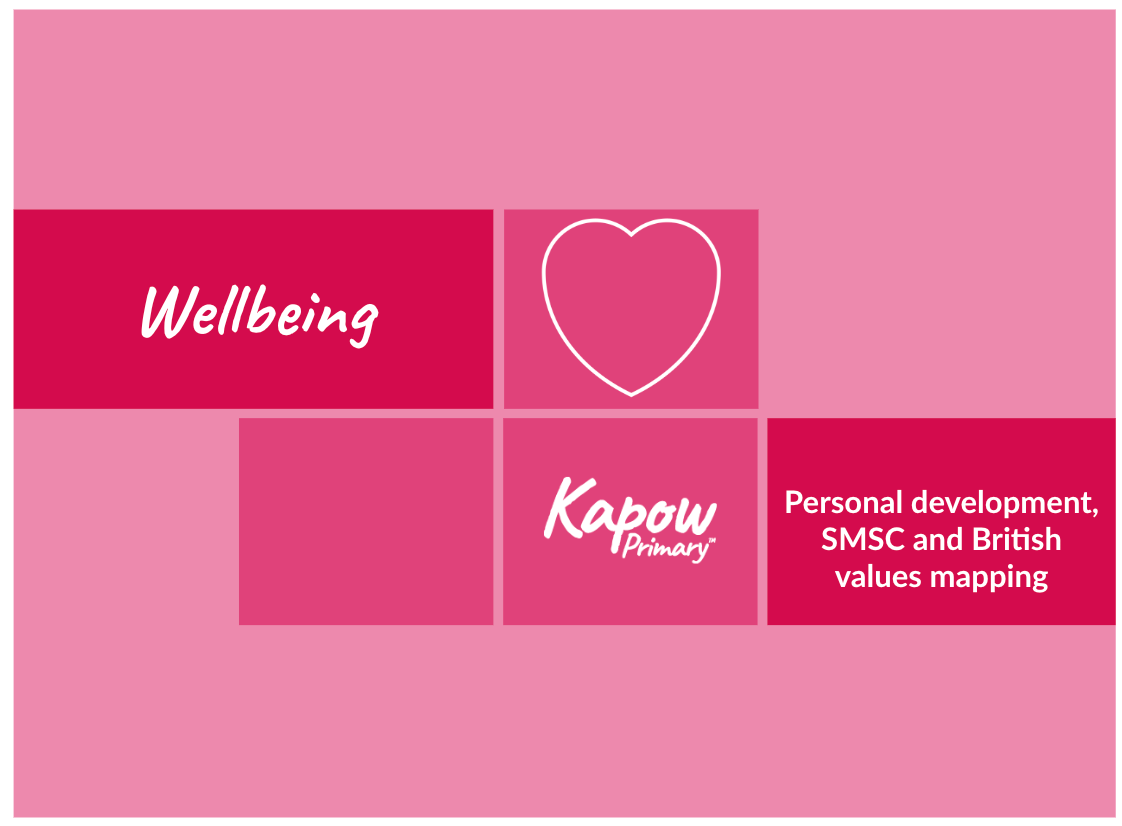
Wellbeing: Personal development, SMSC and British values mapping
A user-friendly document mapping Ofsted's SMSC descriptors, British values and Personal development statements against Kapow Primary's Wellbeing curriculum.
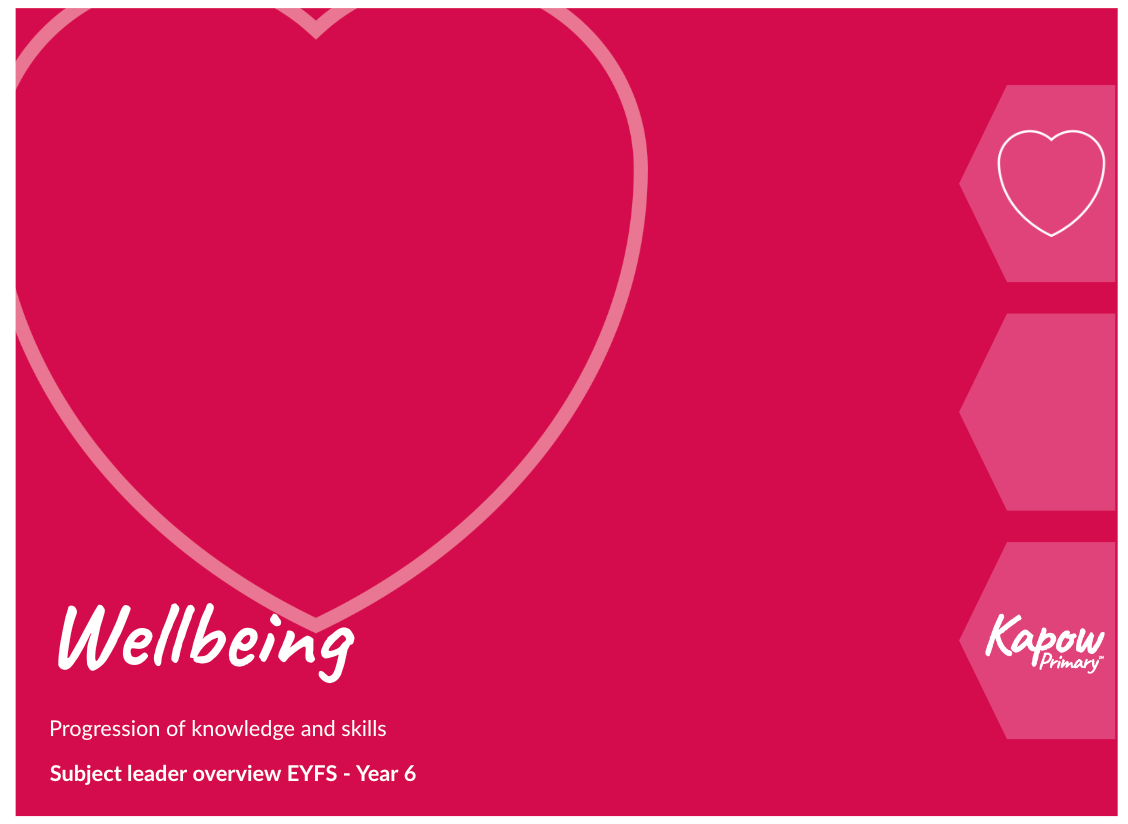
Wellbeing: Progression of knowledge and skills
Showing how pupils' knowledge and skills develop when following the Kapow Primary Wellbeing curriculum.
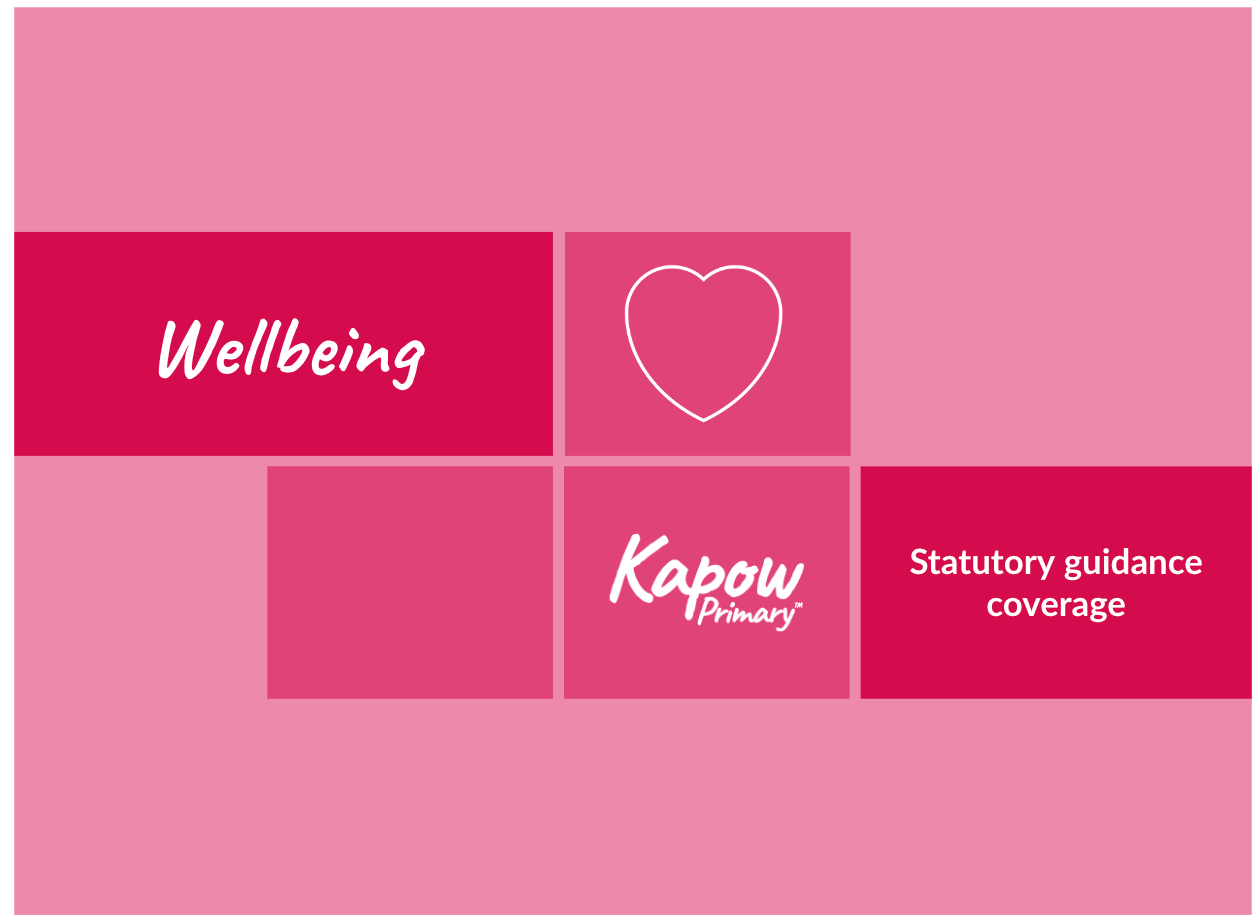
Wellbeing: Statutory guidance coverage
This document shows which Kapow Primary Wellbeing lessons give coverage of the statutory RSE and Health Education published by the…
Cross-curricular opportunities
English
Spoken language
Pupils should be taught to:
- Listen and respond appropriately to adults and their peers.
- Ask relevant questions to extend their understanding and knowledge.
See National curriculum - English - Key stages 1 and 2.
Art and design
Pupils should be taught:
- To create sketchbooks to record their observations and use them to review and revisit ideas.
- To improve their mastery of art and design techniques, including drawing, painting and sculpture with a range of materials [for example, pencil, charcoal, paint, clay].
See National curriculum - Art - Key stages 1 and 2.
PE
Pupils should be taught to:
- Take part in outdoor and adventurous activity challenges both individually and within a team.
See National curriculum – Physical education – Key stages 1 to 2.
British values
- Mutual respect
- Individual liberty
See Promoting fundamental British values as part of SMSC in schools (non-statutory advice).

